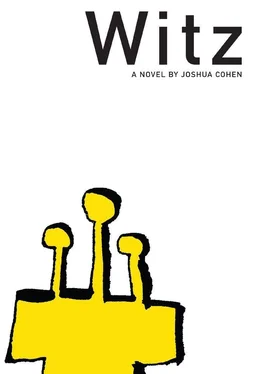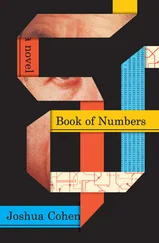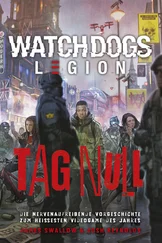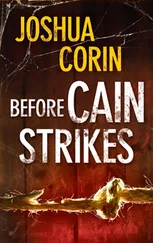Gray with white shutters.
What number?
I’ll know it when we’re there.
White with gray shutters.
What tree?
Apple or Fig.
Which water?
There are waters here, too.
Apple River? Apple Lake?
Lane or street or avenue.
Or boulevard or way.
What number?
33?
Why am I thinking 33? and she straightens herself
in the seat and her skirts.
Open a window, he says, in the midst of a pianissimo mistaken for silence, tries to find something else on the radio so that they don’t have to talk. Across her lap a bouqet of irises; in the backseat, a bottle of wine.
What’re their names?
Who?
Their daughters’.
I forget, there’re so many of them, they’re
like locusts.
How many?
I think so.
What?
You don’t listen.
You’re the one who works with him.
And so?
You tell me.
Anyway, I work for him .
And us? she says, looking to the seat where the
wine’s rested itself in a seam.
What? he’s distracted, peers over the wheel into the headlights’ saving arc.
Nothing, she sighs you’re not listening, never, then sinks down in her seat, water from the flowers soaking her sweater through the paper and plastic they’re wrapped in.
He glances from his watch to the time of the stereo display.
Or the frequency, there on the dash.
He leans over once to peep at her watch and she thinks he’s trying to kiss her.
His office is empty, and Israel, who’d hired him just last week, is still sitting in traffic. Why? What do you consider your greatest strengths? Your greatest weaknesses? Where do you want to be in the practice in five years? In ten? The chair had been comfortable and the knot of his tie was of the appropriate size. What judges have you appeared before? What kind of hours have you been used to working? Have you brought sample briefs? His underwear had been new and clean, his socks, too. There’d been too many questions, and he’s expecting even more of them tonight, and more personal. You are married, is that correct? Does she work? Do you mind? Why no kids?
Still, it couldn’t have gone better, then the invitation for Friday night dinner. He’d answered a resounding yes to it all.
And he shows his gratitude through lateness, just perfect. An apology’s required, but he’s feeling more: maybe he’ll offer to wash dishes, or take out the trash.
Why the fear, he already has the job. Never sure.
Hanna, she’d hired Israel for husband already knowing the faults.
Why all this waiting when he has no workwise reason to wait, when he has a home and a meal, hot, and guests, yes, probably guests already, them waiting, too, and a wife and kinder only waiting for him who they themselves have no waitwise excuse — courtesy not having any priority over the coming of Shabbos?
He’s waiting in fear, Israel, out of fear.
His guests and new junior partner, what’s his name and the girlfriend, the wife.
Fear because of cancers, because he thinks he has cancers, because he knows he has cancers, because he has cancers.
And why does Israel have cancers?
Because his mother had had cancers and his mother’s mother had had cancers, his mother’s father, too, then their own parents as well, and then their parent’s parents had all had their own cancers and yadda and blah unto the most rarefied generation; everyone he’s ever been related to all the way back probably forever since even Adam, he’s thinking — whose death at almost one thousand years old isn’t accounted for in the detail that would seem to befit the first death, naturally caused — had had cancers, and then died of them weakened and feeble at whatever unripe young age.
And then fear for his own kinder, too. As those of his wife’s family who didn’t die of cancers, who’d died of anything else, if they’d only lived longer, lived long enough, if the Germans and Russians, among others, didn’t do what the Germans and Russians have been known to do, always, then they, too, would’ve eventually died of cancers, he’s sure of it, has to’ve been — it’s in the family, a blackbox heirloom kept in the basement, locked in an attic’s suitcase, a trunk at the foot of the stairs.
Inherited, dust to dust.
Why? Because. Cancer is a waiting matter. A working matter, only of time.
Why, because you have to wait on your cancers, patience patience patience — having cancers like having guests, expecting husband to father himself home with the challah, in time for the motzi and wine.
Why, because you have to work at your cancers, slowly, patiently, nurturing them, allowing them the room to like you know grow. Like in any relationship, like with wife and kinder.
Israel has all the cancers, and they’re all his kinder: some intelligent, others stupid, some handsome, others ugly, some tall others short, some embarrassing, others to pride. To shep nachas over and above, kvell the tears. To forget — though it doesn’t matter which in the end. Why, because they’re his.
Because he feels it, he knows it, deep down in the cells. He has cancers of the heart and the liver and kidneys and lungs all two of them then the throat and prostate and that that’s testicular, too, leftleg cancer, rightleg cancer, which he feels down to his toes that have cancers of their own to cope with. To deal, with the bladder control, the hairloss; imagining the mirrored shame, hurting as if a reflection of the pain disembodying, gotten under the skin despite the pills, despite treatments. He has eye cancers, nose cancers and ear cancers, brain cancers — and cancer. His cancers have cancer and those cancers have cancer, his tumors everywhere have tumors themselves and those tumors, tumors; tumors unto tumors unto tumors unto tumors unto the umpteenth generation, why not. In his office, Israel sits in what most would think perfect physical shape, recently evaluated, relative doctor signedoff on as maybe, nu, a dessert overweight, like most he could stand to lose say ten, twelve pounds, no more meals after snacks, though in generally satisfactory overall health, except for the — anyway thinking himself, maybe even wishing himself, dead away.
But until that wish might be fulfilled, finalizing him, naming him tensed in the past, Israel names himself, his own tumors — some he gives his kinder’s names and some names he thinks are his kinder’s, some names he would’ve like to have named them: Rubina, yes, Josephine and Batya, Evan and Jake — Jacob, to her — Josef or Joseph and Justin and Samuel, Simon and Steven or Stephen, and Benjamin, yes, Benjamin ben Israel Israelien; he’d always hoped for a boy, they all had, women crying out for a son, for Israelien cancers to come.
Why does he name them? To master them. To ignore.
Israel’s been sitting and naming his cancers, knowing them more intimately than he knows his own kinder, Hanna suspects. While he should be heading home, he reclines, swivels, tilts renal papillæ aching kidneyways to the left in his chair, hunches to count his cancers on his cancerous fingers with cancerous numbers kept orally in the black, deep into the carcinogenically latestage early evening, then thinking, maybe my cancers should have the honor themselves, their own cancers, too, and those cancers’ cancers, it’s only proper — and, soon enough, quarter after advanced, surgically halved, and with Maintenance spilling their own diagnoses in all the languages of Queens far dark down the hall, everything would seem cancer, cancerous, carcinogenic: his chair, his computer never unpacked, still in its box on the floor, and the quarky, panging computer things inside the computer still in its box on the floor, too, and his fountainpen and the dark though washable ink that it looks like cancer anyway, and the door’s a cancer door, his desk a cancer desk, he’s thinking the elemental material of the universe is cancer and that the fundamental quality of the universe is how cancerous it is: how the planets are nothing but tumors, mere carcinosarcomatic growths, verrucous hunks of whirlwinding storm, resistant to all terraformed, their surfaces ringed by heavy clouds of melanoma as malignant as hell; and how space, the orbital push and pull of everything it’s really only this cancerous tissue that’s always thickening and thinning into itself then perpetually expanding out then falling in cancerously until death and everything, it just dies. And then the cancers themselves come to death. And then death itself dies. And then what, he’s still late.
Читать дальше












